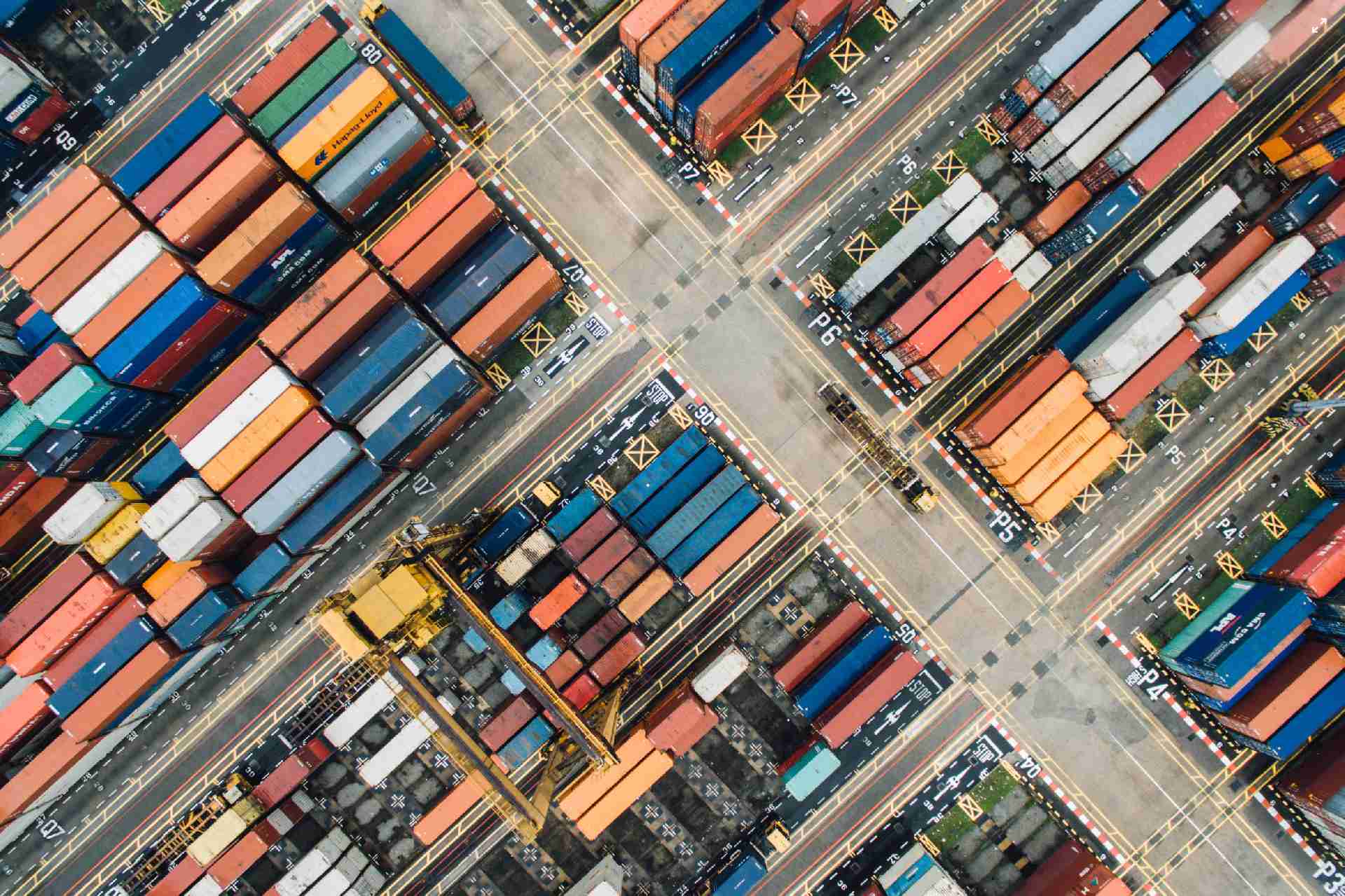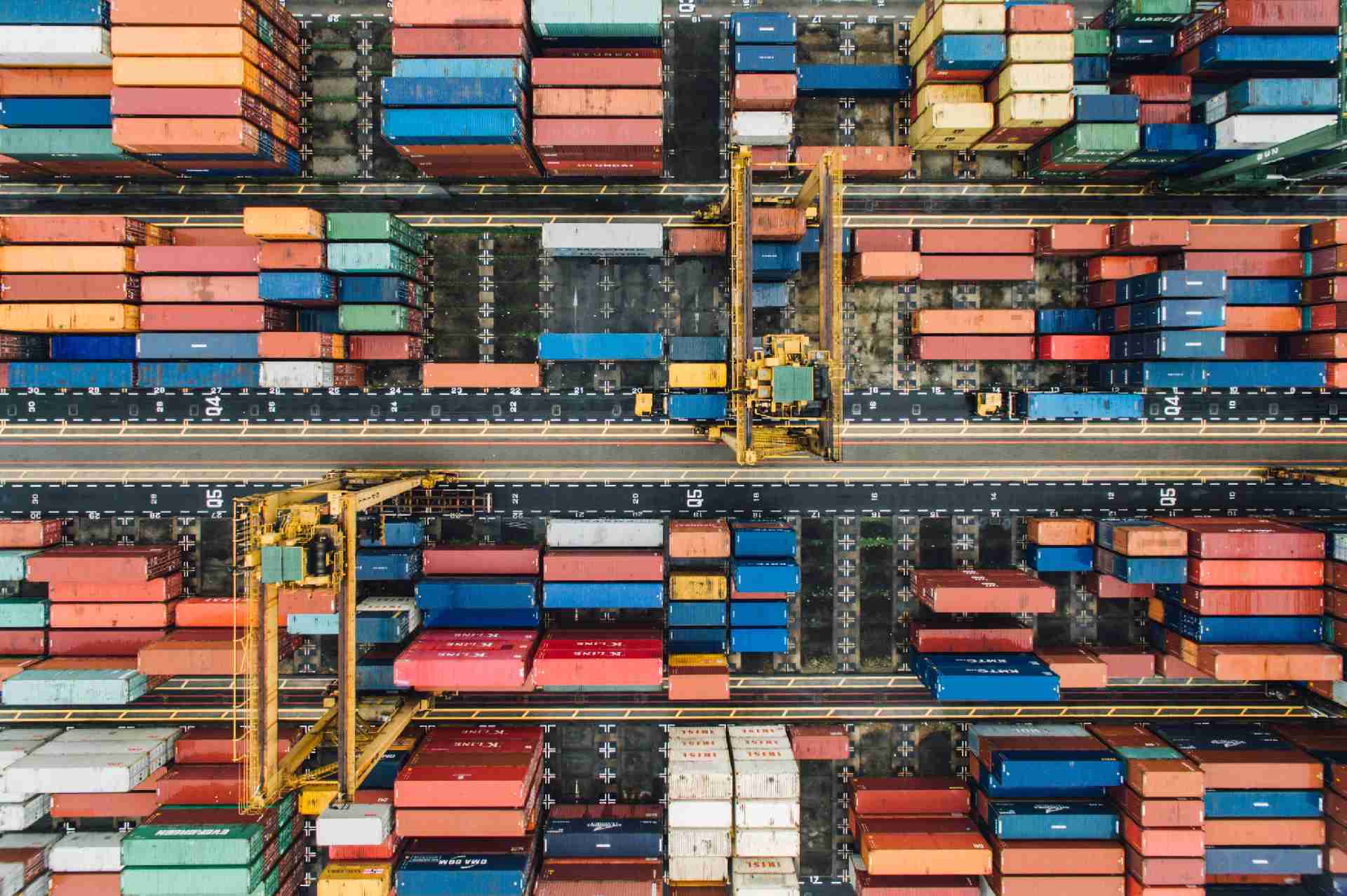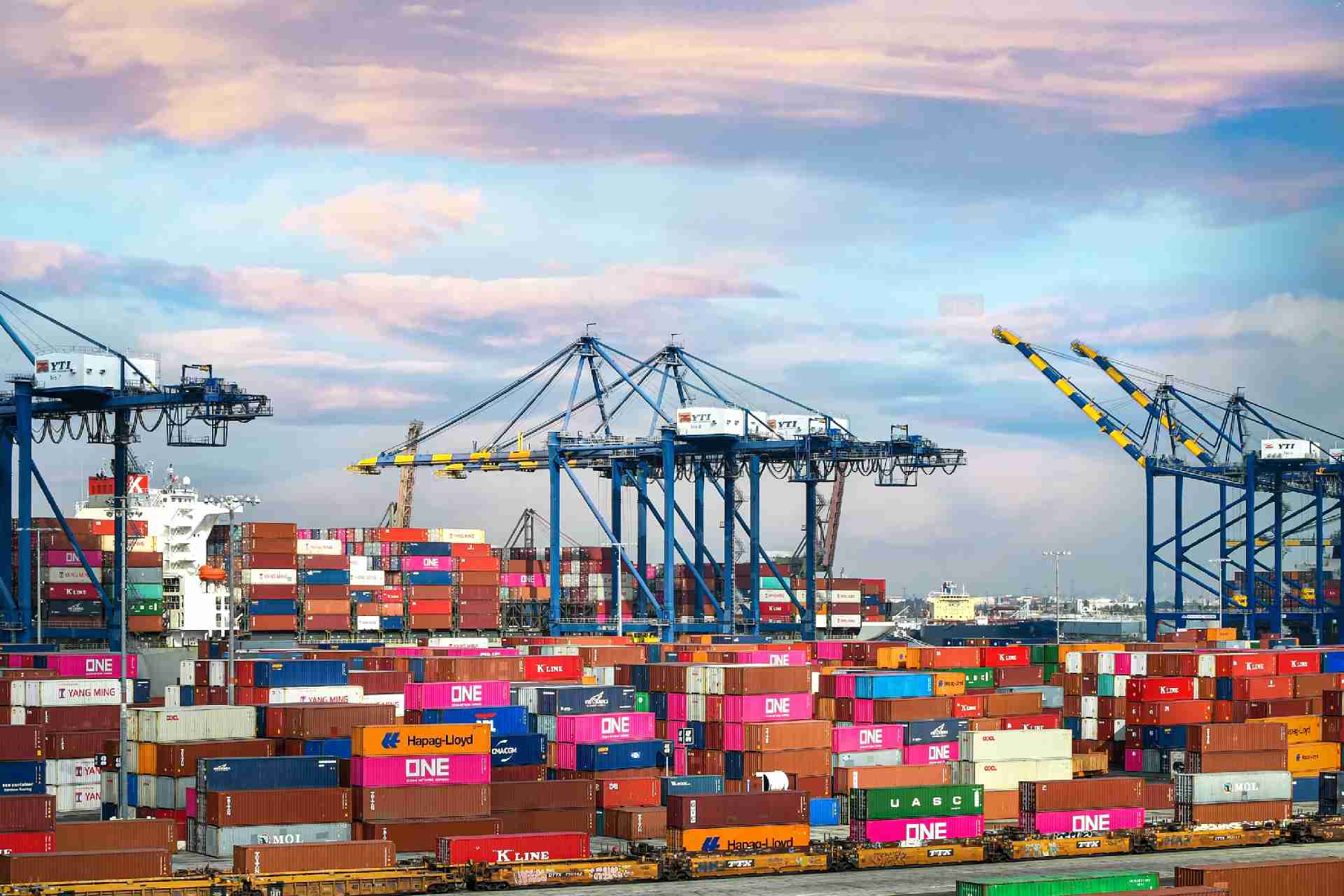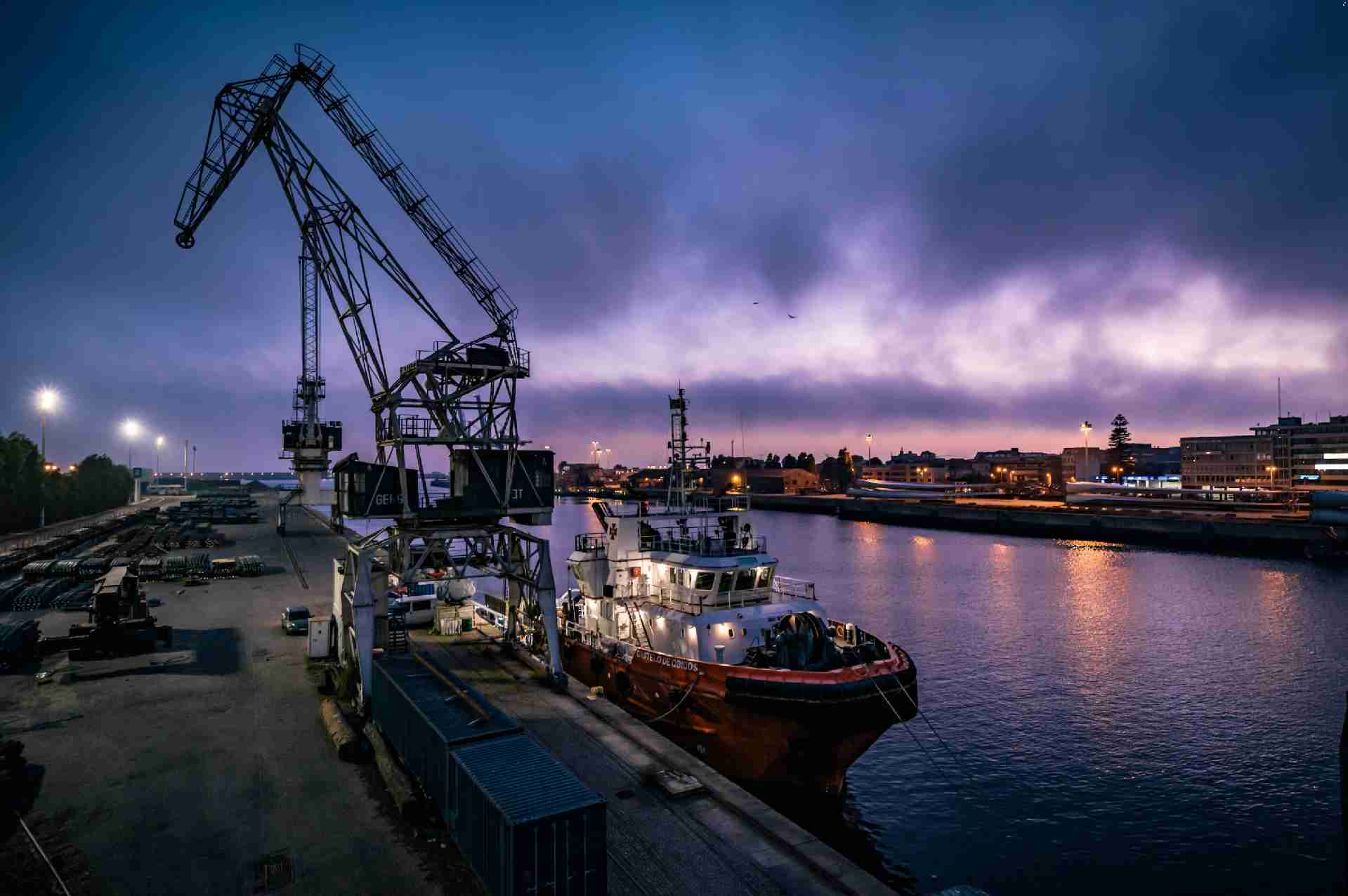As freight forwarders, we deeply understand the importance of sea freight from China in international trade. Sea freight from China serves as a vital logistics channel connecting Asia with the global market. It is not just an economic activity but also an internationalized business. This article will provide an overview of the current status and development of sea freight from China, discussing its advantages, disadvantages, necessary documents, pricing, as well as the processes and considerations involved. Let us delve into the knowledge and skills related to sea freight from China. If you have questions after you finish the reading, please feel free to consult our experts for help.
Overview of Sea Freight from China
What is sea freight from China?
Sea freight from China refers to the maritime transportation of goods from Chinese ports to destinations worldwide. As the world's largest producer and exporter of goods, sea freight from China has become increasingly busy and is an indispensable part of international trade.
Current status of sea freight from China
Sea freight from China has become a significant component of global maritime operations, and Chinese ports are among the busiest in the world. According to statistics from China Customs, China's total import and export value reached 31.54 trillion RMB in 2019, with sea freight playing a crucial role.
Development of Chinese ports
The development of Chinese ports has also been rapid. There are numerous ports in China, primarily concentrated in coastal regions. Ports such as Shanghai, Ningbo, Shenzhen, and Guangzhou are the busiest and among the largest ports globally.
Scale and influence of the Chinese sea freight industry
The scale and influence of the Chinese sea freight industry continue to expand. Globally, China's export volume has made it one of the largest exporting countries and one of the world's largest freight markets. The development of the Chinese sea freight industry plays an indispensable role in the prosperity of global trade.
Sea freight from China has become an integral part of international trade, Chinese ports and sea freight operations continue to grow and contribute to the smooth conduct of international trade.
JIKE Note: For a free quote, please contact one of our JIKE shipping experts and they will send you a quote within 48 hours.

Professional terminology
There are many professional terminologies in the field of sea freight from China. Below are several frequently utilized terms along with their corresponding explanations:
FCL (Full Container Load): Refers to transporting a whole container by a single shipper.
LCL (Less Than Container Load): Refers to the transportation of multiple shippers' goods in a shared container.
TEU (Twenty-foot Equivalent Unit): Refers to one of the standard sizes of containers, specifically a 20-foot container.
FEU (Forty-foot Equivalent Unit): Refers to one of the standard sizes of containers, specifically a 40-foot container.
CY (Container Yard): Refers to where containers are stored and managed.
CFS (Container Freight Station): Refers to the facility where container cargo is handled.
B/L (Bill of Lading): A transportation document that records information such as the owner, quantity, quality, and shipment date of goods.
HS Code (Harmonized Commodity Description and Coding System): A uniform coding system used to classify goods.
THC (Terminal Handling Charge): Refers to the fees associated with the handling of containers at the terminal.
D/O (Delivery Order): A document that authorizes the release of goods and contains information such as the recipient, quantity, quality, and delivery date.
ETA (Estimated Time of Arrival): Refers to the estimated arrival time of a vessel at the destination port.
ETD (Estimated Time of Departure): Refers to the estimated departure time of a vessel from the origin port.
ATD (Actual Time of Departure): Refers to the actual departure time of a vessel from the origin port.
ATA (Actual Time of Arrival): Refers to the actual arrival time of a vessel from the origin port.
DG (Dangerous Goods): Refers to goods that have the potential to pose risks during transportation.
CO (Certificate of Origin): A document certifying the goods' origin.
SOC (Shipper-Owned Container): Refers to containers purchased or leased by the shipper to transport their goods.
COC (Carrier-Owned Container): Refers to containers purchased or leased by the carrier to transport their goods.
These are some commonly used professional terminologies from China's sea freight industry. Freight forwarders need to be familiar with these terms and provide detailed explanations to clients to enhance their understanding of the processes and costs involved in sea freight operations.
Advantages of Sea Freight from China
Sea freight from China has numerous advantages. Here are some common advantages:
Geographical advantage: China is located at the center of Asia with abundant coastlines and inland waterways, enabling connections and trade with ports worldwide. It has become a vital center for global sea freight operations.
Advantageous labor costs: Compared to other developed countries, China has lower labor costs, leading to relatively lower labor costs in sea freight operations and the ability to offer more competitive prices.
Freight cost advantage: Sea freight from China benefits from relatively lower freight costs. This is due to China's abundant manufacturing resources, raw materials, and mature supply chain management system, which provide a significant cost advantage in transporting goods.
Transport time advantage: China has mature sea freight network with so many ship owners to choose, which can meet different shipping time needs. Although sea freight from China generally has a longer transport time than other modes of transportation, it excels in long-distance and large-volume shipments. Various measures can be implemented to expedite cargo delivery, such as optimizing routes and increasing the frequency of departures.
Capability to handle large shipments: Due to cost and capacity advantages in sea freight operations, China has a notable edge in cargo transportation. Chinese ports and logistics facilities have also been gradually developing and improving to meet the demands of various large shipments.
In summary, sea freight from China offers several advantages.So they can provide excellent services to meet customer demands.
Disadvantages of Sea Freight from China
The disadvantages of sea freight from China mainly include the following aspects:
Limited risk control ability: Sea freight is susceptible to weather and ocean conditions, making it relatively risky, and dealing with issues can be complex. Additionally, international trade involves multiple countries and regions, and the influence of factors such as politics, laws, and culture among different countries increases the risks associated with sea freight.
Longer transport time: Compared to air and land transportation, sea freight has a longer transit time, often taking weeks or even months to reach the destination, which can be inconvenient for shippers. So it is unsuitable for transporting urgent or time-sensitive goods.
Management complexity: Sea freight involves multiple countries' and regions' laws, policies, and trade regulations. Freight forwarders handling sea freight operations must manage significant paperwork and procedures and require in-depth knowledge of various international trade terms and rules.
Higher marine insurance costs: Due to the higher risks associated with sea transportation, marine insurance costs are relatively higher, increasing the overall transportation costs.
Not suitable for small volume shipments: As sea freight requires the rental of full container loads, it is not suitable for transporting small volume shipments, resulting in some wastage for shippers.
In conclusion, although sea freight from China has certain advantages, there are also several disadvantages. Freight forwarders must comprehensively understand these disadvantages and communicate them effectively with clients to devise appropriate transportation plans and risk controls.
Types of cargo
The types of cargo for sea freight from China can be categorized as follows:
Full Container Load (FCL): Refers to cargo where the shipper loads the entire container with their goods, shipping it as a whole container. This type of cargo is suitable for transporting a large volume of goods with relatively uniform characteristics, eliminating the need for sorting or organizing processes.
Less than Container Load (LCL): Refers to cargo where multiple shippers share a container by consolidating their goods. This option is suitable when the cargo quantity needs to be increased to fill a full container or when shippers want to share transportation costs.
Bulk Cargo: Refers to loose bulk goods that are not loaded into containers and are typically transported using bulk carriers. This type of cargo is suitable for transporting large quantities of bulk goods such as grains, ores, etc.
Reefer Cargo: Refers to goods that require a specific temperature to be maintained during transportation, such as food products, pharmaceuticals, etc. This type of cargo requires specialized refrigeration equipment and preservation measures, resulting in higher transportation costs.
Dangerous Goods: Refers to items with certain hazardous characteristics, such as flammable, explosive, toxic substances, etc. This type of cargo must comply with international regulations for transporting dangerous goods and requires a declaration, inspection, and other procedures before transportation.
Oversized Cargo: Refers to cargo where the weight or dimensions of individual items exceed the limits set by shipping companies or ports, requiring special application, special handling and approval before transportation and involves higher transportation costs.

Necessary documents
The necessary documents for sea freight from China include the following:
Packing List: It includes information about the goods, such as their names, quantities, weights, dimensions, values, etc. This document is essential for handling transportation procedures and insurance matters.
Commercial Invoice: It provides information about the goods, such as their names, quantities, unit prices, total values, etc. This document is necessary for customs declaration, taxation, cargo inspection, and insurance matters.
Shipping Instructions: SI is a contract between freight forwarder and ship owner, which specifys the transportation method, information of cargo data, and other details related to the goods. Ship owner will release a Bill of Lading based on the information on Shipping Instruction.
Bill of Lading: It is a transport document issued by the shipping company, confirming ownership of the goods and specifying the terms of the transportation contract. It also serves as proof of payment for banks and insurance claims.
Customs Documentation: This includes export declaration forms, import declaration forms, certificates of origin, inspection and quarantine certificates, etc. These documents are necessary for customs declaration, taxation, cargo inspection, and insurance matters.
Cargo Insurance Policy: The insurance document purchased by the shipper to cover the risks of loss or damage to the goods during transportation.
Other Special Documents: Depending on the type of goods and destination requirements, additional documents may be required, such as certificates for dangerous goods, health certificates, permits, acceptance reports, etc.
Process of Sea Freight
The process of sea freight from China can be divided into the following steps:
Preparation: Customers need to prepare documents such as the cargo list, packaging requirements, invoices, and find a reliable freight forwarding company. They also need to select the appropriate shipping route and schedule.
Packaging: Goods must be packed according to the regulations of the shipping company and customs. Protective measures for transportation should be arranged to ensure the safe delivery of the goods.
Consignment Procedures: Freight forwarders assist customers in handling necessary consignment procedures such as issuing the bill of lading and arrange customs declaration, ensuring that the goods comply with customs and shipping company requirements.
Loading and Trucking: Freight forwarder arrange the loading of the goods into containers and any necessary trucking. They need to track the transportation process, provides timely logistics information, and resolves any issues that may arise until the container arrive at the container yard.
Goods Transportation: The goods are transported by sea to the destination port, which may involve multiple transshipments and scheduling.
Customs Clearance and Delivery: The freight forwarder is responsible for assisting customers in completing customs clearance procedures at the destination and arranging to deliver the goods to the specified address.
The above steps provide a general overview of the sea freight process from China. However, each shipping project has its unique procedures and details. Freight forwarders customize their services based on each customer's specific requirements and circumstances.
Sea Freight Prices
Sea freight prices from China refer to the cost of transporting goods from Chinese ports to overseas destinations. Here are some details regarding sea freight prices from China:
Factors Affecting Prices
Calculating sea freight prices from China involves considering multiple factors such as the Container type, weight of the goods, shipping routes, shipping date, market supply, etc. Typically, accurate prices can be obtained through inquiries and comparisons. Please note that the more you offer, the more excact the price.
Components of Sea freight prices from China
If you want to arrange goods by sea from China, you should know that shipping costs comprise basic freight charges, departure port charges (such as THC, EIR, Seal, AMS/ENS), loading and trucking, destionation port charges, and customs and delivery in your country, etc. The specific composition and proportion of these fees may also vary depending on ship owners, routes, types of goods, quantity, and shipping schedules.
Competitiveness and Comparative Analysis
Price is important when selecting sea freight service providers from China. Customers can find the optimal solution by comparing and analyzing the prices and services offered by different freight forwarders. Factors such as the reputation of the freight forwarder, service quality, and professional capabilities also influence the selection process.

Target users
The users of sea freight China include businesses, individuals, and government agencies. These entities can be importers or exporters, trade intermediaries or shipping agents. Generally, the following entities may choose Chinese sea freight:
Chinese Exporters: Exporters in China sell products to overseas markets and use sea freight from China to transport their goods. These exporters include large corporations, small and medium-sized enterprises, or individual traders. They may engage freight forwarders to handle the sea freight procedures, including logistics consultation, customs clearance, transportation insurance, container packing, and consolidation.
Overseas Importers: Importers are businesses or individuals who purchase goods from chinses markets and import them into their own countries. They may choose sea freight to transport their goods. Importers typically need to provide customs clearance documents such as related import permits, importer information, and inspection certificates to ensure the legal entry of goods.
Shipping Agents: Shipping agents refer to logistics companies or individuals that provide sea freight services from China. They offer various services related to sea freight from China, including cargo transportation, warehousing, customs clearance, container consolidation, and international logistics consultation, etc. They act as bridges in the import-export trade.
Government Agencies: Government agencies may require sea freight from China to import specific goods such as military equipment or raw materials. These agencies must comply with sea freight regulations and relevant provisions to ensure goods' safe and legal entry from China.
Restricted items
As an important mode of cargo transportation, sea freight from China has certain p Restricted items that cannot be shipped. Here are some common Restricted items:
Flammable Substances: This includes matches, cigarettes, paint, alcohol, and other flammable materials. Due to their combustible and explosive nature, they pose a high risk of accidents and are therefore not allowed for shipment.
Liquefied Gases: This includes petroleum gas, propane, butane, and other gases. Due to their explosive and corrosive properties, they can cause significant harm to ships and cargo, and thus they are prohibited from shipment.
Drugs and Pharmaceuticals: This category includes marijuana, cocaine, heroin, unauthorized medicines and prescription drugs. These items disrupt social stability and public health and carry severe legal consequences.
Hazardous Chemicals: This category includes cyanides, sulfuric acid, hydrochloric acid, ammonia, and others. These substances possess corrosive, toxic, and explosive characteristics that can pose significant hazards to cargo, ships, and personnel, making them restricted for shipment.
Weapons and Ammunition: This category includes firearms, ammunition, explosives, and other related items. These goods are dangerous and present significant security risks; therefore, they are prohibited from shipment.
Animals and Plants: This includes live animals, plants, timber, seeds, fertilizers, pesticides, etc. These items can potentially spread diseases and threaten the ecological balance, requiring declaration and approval by relevant regulations.
To avoid unnecessary losses and risks, it is important to thoroughly understand and confirm restricted items before engaging in sea freight shipping from China.

International trade terms
Here are some common terms:
1.EXW(Ex Works): The seller only needs to prepare the goods and inform the buyer of pick-up. After that, the buyer should bear all costs, risks, and responsibilities.
2.FOB (Free On Board): It refers to the seller's responsibility for delivering the goods to the carrier at the specified loading port, with the associated costs already included in the price of the goods. After goods are on board, the buyer should bear all the following shipping costs, risks, and responsibilities.
3.CFR (Cost and Freight): It indicates that the seller is responsible for delivering the goods to the destination port, including the shipping freight, all of which are included in the price of the goods.
4.CIF (Cost, Insurance, and Freight): It indicates that the seller is responsible for delivering the goods to the destination port, including the costs of transportation and insurance, all of which are included in the price of the goods. The only difference between CIF and CFR is the Insurance.
5.DDU (Delivered Duty Unpaid): The seller is responsible for delivering the goods to the buyer's designated destination address, including all import procedures. And the buyer only needs to pay taxes and duties.
6.DDP (Delivered Duty Paid): The seller is responsible for delivering the goods to the buyer's designated destination port, including all import procedures and payment of taxes and fees.
Tips: precautions for Sea Freight from China
When shipping goods via sea freight from China, there are several precautions to be mindful of to ensure smooth transportation and successful clearance through customs:
Select the appropriate mode of transportation: Different types of goods require different modes of transportation, such as container shipping, bulk shipping, or refrigerated shipping. Choosing the appropriate mode of transportation can minimize losses and damages during transit.
Prepare necessary documents and certificates: Before sea freight, it is important to prepare all the required documents and certificates, such as commercial invoices, packing lists, shipping instructions, insurance certificates, export permits, and import permits for the destination country. Adequate preparation of documents and certificates can reduce delays and cost losses due to incomplete paperwork.
Comply with customs regulations: Before shipping goods, it is essential to familiarize yourself with the customs regulations and prohibited imports of the destination country to avoid goods being detained or destroyed. It is also important to be aware of regulations regarding prohibited items in international trade to avoid potential disputes.
Proper packaging of goods: Goods transported via sea freight undergo long-distance transportation and multiple loading and unloading processes. Therefore, the quality of the packaging is crucial. Proper packaging can prevent breakage, compression, and vibration during transportation.
Choose a reliable freight forwarding company: Selecting a reliable freight forwarding company can provide professional services such as cargo tracking, customs clearance, insurance, etc., and can help minimize risks and issues during sea freight.
Insurance: Purchasing cargo transportation insurance can safeguard the safety of goods during transit. It is important to choose the appropriate type of insurance based on the value and risks associated with the goods and to understand the coverage and terms of the insurance policy.
How to choose an appropriate Freight Forwarding company
Choosing the right freight forwarding company is crucial for successfully transporting goods. Here are some suggestions to help you select an appropriate freight forwarding company:
Understand the background and qualifications of the freight forwarding company
It is important to choose a reputable and qualified freight forwarding company. You can do so by:
Checking the company's official website for information about the company's background and qualifications.
Verifying the company's registration with local government or trade associations to ensure its legal registration.
Checking user reviews and feedback on social media, forums, or websites to understand the company's reputation and customer satisfaction.
2. Consider the service quality and capabilities of the freight forwarding company
The service quality and capabilities of the freight forwarding company are important factors to consider when choosing one. Some factors to consider include:
The company's expertise and experience: The freight forwarding company should have expertise and experience to provide tailored advice and solutions to ensure the smooth transportation of your goods.
Customer service: The freight forwarding company should provide prompt responses and assistance to ensure your goods are handled properly.
Network and resources: The freight forwarding company should have a wide transportation network and resources to provide comprehensive transportation services to meet your various needs.
Insurance and risk management: The freight forwarding company should offer comprehensive insurance and risk management solutions to ensure adequate protection for your goods during transportation.
3. Understand the pricing and payment methods of the freight forwarding company
The pricing and payment methods of the freight forwarding company are also important factors to consider. Some factors to understand include the following:
Breakdown of costs: The freight forwarding company should provide a detailed breakdown of costs and a comprehensive cost list to ensure you understand the meaning and amount of each cost item.
Payment methods and settlement periods: The freight forwarding company should offer multiple payment methods and flexible settlement periods to meet your needs.
Additional charges and terms: The freight forwarding company should specify any additional charges and terms to avoid unnecessary costs and disputes.
In summary, choosing an appropriate freight forwarding company requires considering multiple factors. When selecting a freight forwarding company, it is important to consider its background and qualifications, service quality and capabilities, pricing, and payment methods, and conduct thorough comparisons and analyses. Additionally, it is advisable to consider whether the freight forwarding company specializes in your specific area of needs, as well as factors such as reputation and word-of-mouth. Gathering information through various channels, such as online searches, references to testimonials, and consulting with other businesses, is recommended to ensure you choose a freight forwarding company that suits your requirements.

Why Choose JIKE as your Sea Freight forwarder
As a professional freight forwarding company, JIKE offers the following advantages and features:
Rich experience and professional service: JIKE has years of freight forwarding experience and extensive sea freight transportation expertise. We can provide clients with professional, efficient, and comprehensive freight forwarding services.
Global logistics network coverage: JIKE has established extensive partnerships with various shipping companies, airlines, and freight forwarding companies, enabling us to offer logistics services covering the globe and meet diverse client needs.
Efficient operations and management: JIKE has a dedicated team of professionals in operations and management who can provide fast and accurate freight forwarding services, ensuring the safe and smooth transportation of goods to their destination.
Reasonable pricing and flexible payment methods: Through collaborations with ship owners and overseas partners, JIKE can offer clients reasonable pricing and flexible payment methods, ensuring clients receive the best value-for-money services.
Comprehensive after-sales service: JIKE places importance on after-sales service, providing clients with services such as customs clearance and delivery to ensure the safe arrival of goods at their destination, as well as timely updates on transportation status.
In summary, choosing JIKE as a sea freight service provider allows clients to benefit from professional, efficient, and comprehensive freight forwarding services that meet their diverse needs, while receiving the best value-for-money services. JIKE's extensive experience, global logistics network coverage, efficient operations and management, reasonable pricing and flexible payment methods, and comprehensive after-sales service are all significant factors that make them an ideal choice for clients.
Conclusion
In summary, sea freight from China holds a significant position in the global maritime market, and its prospects in China remain promising. With a wide variety of goods and complex transportation processes, freight forwarding companies also play a crucial role in sea freight from China, as the quality of their services directly affects the safety and smooth transportation of clients' goods.
Looking ahead, China's sea freight industry faces challenges and opportunities. On the one hand, changes in the global trade environment and adjustments in international trade policies will directly impact the sea freight market. On the other hand, applying new technologies will bring more efficient and sustainable maritime solutions, such as 5G, IoT, and blockchain. Freight forwarding companies should actively respond to these challenges and opportunities by continuously improving service quality and capabilities, strengthening digitalization efforts, and providing clients with comprehensive, efficient, and reliable services. Furthermore, it is important to enhance cooperation with international freight forwarding companies, expand into international markets, and improve internationalization levels.
Whatever you need in sea freight from China, JIKE is here to help you!
FAQ
| Q: What are the sizes and types of containers? |
| A: Containers are typically categorized as standard containers and specialized containers. Standard containers usually come in three sizes: 20 feet (20ft), 40 feet (40ft), and 45 feet (45ft). Specialized containers include open-top containers, flat rack containers, refrigerated containers, and dangerous goods containers, etc. |
| Q: How is sea freight cost calculated? |
| A: Sea freight costs are typically calculated based on factors such as the volume or weight of the goods, origin and destination, shipping company, and schedules. Freight forwarding companies can provide clients with corresponding quotations and cost calculations based on their specific requirements. |
| Q: How do I handle customs procedures? |
| A: Customs procedures include export customs declaration, import customs declaration, and bill of lading release, among others. You can find Freight forwarding companies and customs agents to handle customs procedures on your behalf. They will also provide relevant consultation and advice. |
| Q: How can I mitigate risks associated with sea freight? |
| A: Sea freight involves various risks, such as cargo damage, loss, and delays. To mitigate these risks, clients can take measures such as selecting reputable freight forwarding and shipping companies, purchasing appropriate insurance, inspecting and packaging goods adequately before shipment, and providing accurate information and documents about the goods. |
Q: How should I handle the documentation for sea freight? |
A: Documentation for sea freight typically includes the bill of lading, commercial invoice, packing list, and transport insurance certificate, among others. Freight forwarding companies can provide document handling services to ensure that all the required documents comply with international trade and customs regulations and are promptly provided to the shipping company and customs authorities. If you are not familiar with sea freight from China, you can find a reliable freight forwarding company to handle the hassle job for you. Also, you can learn more about entry regulations and taxes on the official customs website. |
Promotions and Special Offers
Here are some potential promotions and special offers from JIKE related to sea freight from China:
Packaging discounts: We may offer packaging services and discounts during specific periods. Clients can save costs by utilizing these services while ensuring sufficient protection for their goods during transportation.
Domestic trucking discount: We offer discounts for domestic logistics, providing discounts or reimbursements for transporting goods from the cargo location to the container yard. This can reduce costs in the initial stage of the transportation process.
Bulk shipment discounts: If clients have a large volume of goods requiring sea freight, we can offer discounts or special offers based on a certain volume threshold.
Partner discounts: If you are a regular client, we might offer you fixed sea freights or discounts. Win-win cooperation is our pursuit.
These promotions and special offers may change, so you’d better carefully check with our experts when selecting our service.
Contact JIKE for a sea freight quotation now!


Consult Our Experts